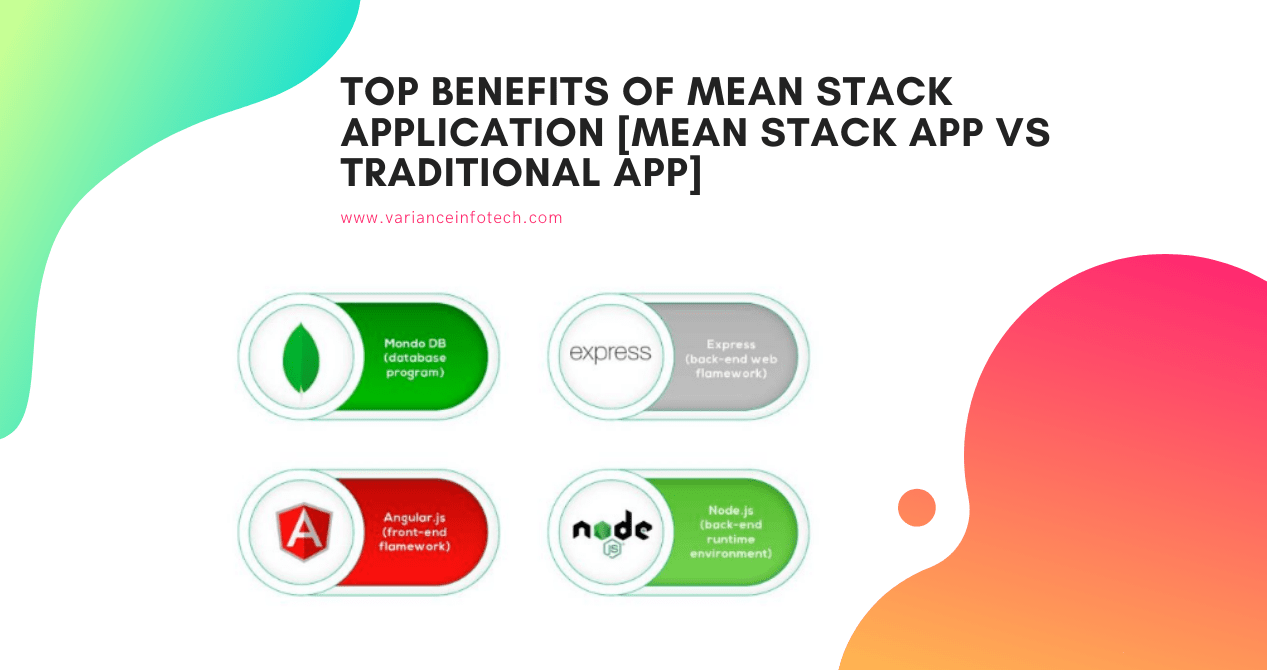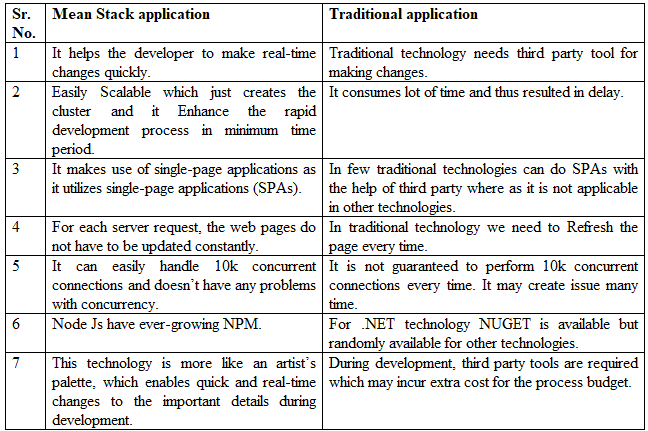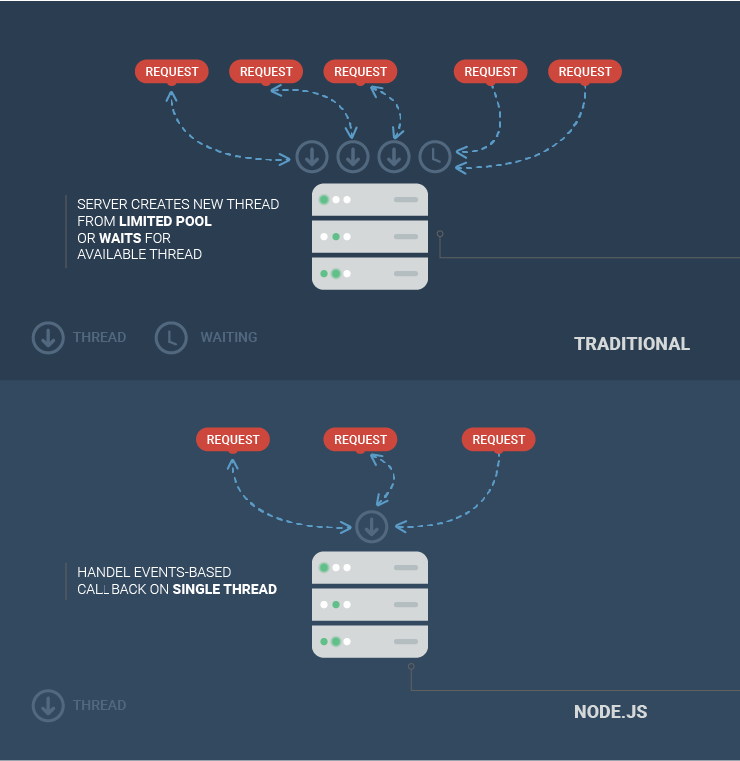Multiple client requests can be handled with the help of the single-threaded model by creating an easy event loop. We make the JavaScript execution rapid with the help of the MEAN Stack network application. Real-Time applications are hugely in demand nowadays. Mean Stack can be a fantastic source for building such types of Real-Time applications.
Difference between Mean Stack and Traditional application:
Different between Mean Stack Application & Traditional Application
Traditional vs MEAN Stack
MEAN Stack application is very essential to fulfill complex and lengthy requirements as well-timed easy process. As the importance of MEAN Stack is reflected on the basis of its user companies like PayPal, Uber, Yahoo, Netflix, etc. and got excellent end results in a very economical way. Netflix is one of the world’s largest online media streaming providers delivering almost 7 billion hours of videos to nearly 50 million customers in 60 countries per quarter. Earlier Netflix was using Java on server-side and JavaScript on the front-end side so the developer had to code twice, which required them to understand both the languages. They had to write everything twice for error handling, activity tracking and debugging.
Benefits of Node.js for web applications (Part of MEAN Stack):
1. Node.js is an event-driven application where the main loop listens for events and then triggers a callback function when one of those events is detected. Node.js also provides a non-blocking I/O API that optimizes an application’s throughput and scalability. In a non-blocking language, commands execute in parallel and use callbacks to signal completion. In a blocking language, commands executed only after the previous command has been completed.
2. Node.js is building real-time web applications. If you come from a C/C++/Java background, you will be amazed at how surprisingly easy it is to quickly build out real-time communication between browser client and server using node.js. In fact, it was found that Node.js allows an application to be developed with 33 percent fewer lines of code than other frameworks, which lessens the great labor of writing lengthy codes by developers for the same task that ultimately reduced development time.
3. Node.js uses the Google V8 JavaScript engine to execute code, and a large percentage of the basic modules are written in JavaScript. Node.js contains a built-in library to allow applications to act as a Web server without software such as Apache https Server or IIS.NPM is the pre-installed package manager for the Node.js server platform. It is used to install Node.js programs from the npm registry. The package manager allows publishing and sharing of open-source Node.js libraries by the community and simplifies installation, updating, and un-installation of libraries.
4. Node.js is a platform built on Chrome’s JavaScript runtime for easily building fast, scalable network applications. Node.js uses an event-driven, non-blocking I/O model that makes it lightweight and efficient, perfect for data-intensive real-time applications that run across distributed devices.
Do You Need more information?
For any further information / query regarding Technology, please email us at info@varianceinfotech.net
OR call us on +1 630 534 0223 / +91-7016851729, Alternately you can request for information by filling up Contact Us



 Please wait...
Please wait...
Leave a Reply